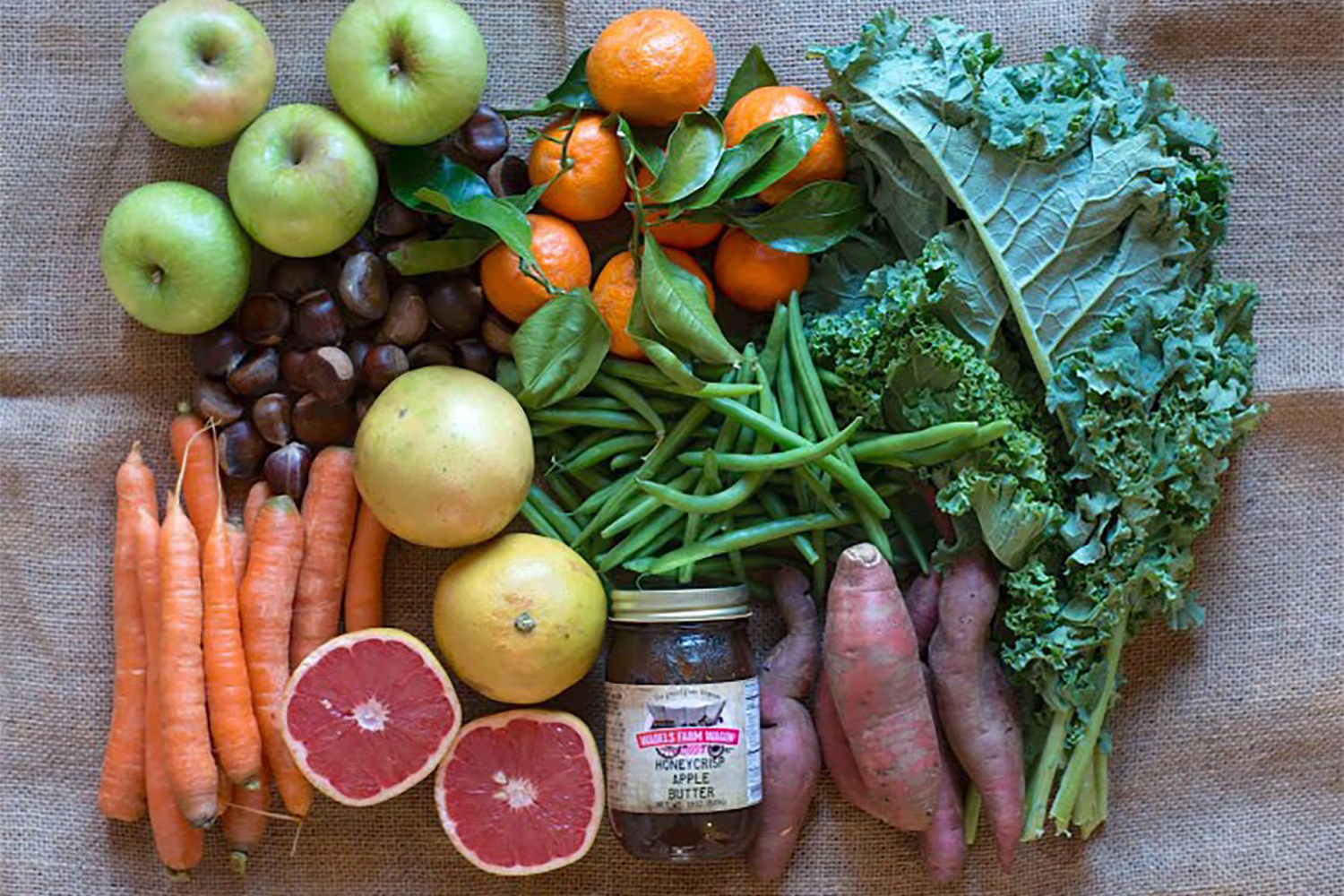15 Healthcare Expert Tips: How To Stay Healthy This Winter
We might not even realize how the change in seasons impacts our physical and mental health. Thankfully, healthcare experts already weighed in on how to stay healthy this winter. Let’s look at their suggestions.

Every winter, we’re bombarded with messages about staying healthy this season. This year is particularly important for taking care of ourselves as we have yet another illness to avoid.
But this isn’t the easiest time to focus on our health. Some of us would prefer to focus on the holidays and enjoying all of the treats that come with them.

Most people have difficulty keeping up with exercise as it cools down. Instead, we wish we could spend all day staying warm and cozy at home under our blankets and hibernate through the cold months.
While that might sound nice, it’s not good for our health. There’s a reason why winter is the season for getting sick (spoiler alert).
Actually, there’s more than one.
It’s easy to neglect our health, and it’s harder to find the motivation to keep up with wellness habits. We might not even realize how the change in seasons impacts our physical and mental health. It isn’t just a case of the winter blues.
Thankfully, healthcare experts already weighed in on how to stay healthy this winter. Let’s look at their suggestions.
“Now is a great time to schedule an appointment with your personal care provider.” - Matthew Kraynak, D.O.
This helps ensure you’re on the right track for receiving preventive care services. It’s a good time for patients to address any health concerns they have. People are more likely to get sick in the winter, so it’s important to stay ahead of anything that might affect your well-being.
Not only should you make time for an annual wellness check, but remember to get your regular health screenings. For example, October is Breast Cancer Awareness month which reminds women to have a yearly screening.
Even though we can be busy with holidays, it’s worth taking the time to have usual wellness exams. After all, you don’t want to miss out on any festivities because you aren’t feeling well. And when things get dreary after the holidays, it will be even worse if you’re sick.
“Make sure your kids have their updated vaccinations.” - Steven Barrows, MD
Vaccines help fight against easily-spreadable illnesses among kids. The immune system becomes weaker during the winter.
Because of this, it would be even more difficult for children to fight off diseases without their vaccines.
“How much flu, we don’t know — but there will be flu.” - Dr. William Schaffner
Anyone over the age of six months should receive a flu vaccine. People who have other health concerns should talk with their doctors about receiving these vaccines.

The flu shot protects yourself and also those in your community who you may expose to germs. This brings me to the next tip.
“You’re actually not helping your business, company or team by coming in sick, because when you do, you’ll share the sickness.” - Scott Hiltunen, MD
Be considerate of others if you’re coming down with something. You want to minimize sharing that illness with others, so it’s best to stay home. After all, you never know what someone else’s health condition is like. And they could pass it to even more people.
Don’t try toughing it out by going to work or school if you’re starting to feel sick. Chances are you won’t be productive anyway since you’re feeling unwell. Avoid others while your sickness clears up so you can lower the spread of seasonal illness.
“…bundle up because it’s cold, but wash your hands because it helps to keep you and those around you healthy.” - Marlene Stetson, RN, CIC
Viruses such as the cold and flu spread easily throughout this season. It’s common to exercise less, eat more unhealthy foods, and our sleep schedule changes once it’s dark longer. Because of this, it’s no surprise that people get sick more often.
When we touch surfaces that viruses and bacteria live on, we’ll get an infection if we aren’t cautious. Touching our face with contaminated hands leads to these germs entering the body.
Washing your hands often and avoiding touching your face decreases your chance of getting sick. It’s best to clean hands with soap and water, especially if your hands are visibly dirty. But An alcohol-based hand sanitizer also helps reduce the number of germs.
“Try to keep any changes to your winter sleep schedule within 30 minutes of your rest-of-year habit.” - Michael Breus, Ph.D.
During the winter, we experience less daylight. Depending on your location, you may only experience six to eight hours of sunlight around the winter solstice.
Sunlight controls our circadian rhythms, our natural body clocks which tell us when to sleep.
When there’s less daylight, our body produces more melatonin which influences our tiredness.
It’s easy to feel more tired earlier in the evening since it gets dark so early. This causes people to sleep more during the winter months. But you don’t actually need more sleep during the winter, even though you feel lethergic.
Doctors recommend that you stick to a normal, consistent sleeping pattern no matter what part of the year it is. Just like not getting enough sleep can cause exhaustion, so can getting too much sleep. Any change in your normal sleep pattern leads to fatigue since it disrupts your body’s natural rhythms.
“…if you eat your meals close to bedtime, you can experience frequent awakenings.” - Raj Dasgupta, MD
People often make poor nutritional choices during the winter. We tend to opt for heavier meals, and holiday festivities usually mean uptake in alcohol consumption. Both of these negatively impact our health.
An increase in carbohydrates causes weight gain, especially since we exercise less during the winter. But these foods don’t only affect our physique - they can even lead to sleep difficulties.
If we consume large amounts of carbs before bed, we’re more likely to experience heartburn which disrupts sleep. And weight gain contributes to sleep apnea, a disorder which causes difficulty breathing during sleep.
“Embracing seasonal produce can help you step up your game and find a new favorite food.” - Lisa Gloede, RD
We’re used to the summer having fresh produce such as watermelon, corn on the cob, and giant salads. Like I just mentioned, winter usually comes with eating more carbs.
Since it’s darker and colder, it doesn’t seem like there would be many foods in season. And depending on your location, you won’t have access to the healthy produce options that you did over the summer.

But there are actually a lot of options. Seasonal fruits and vegetables are low in calories but high in fiber. They contain antioxidants that can help with preventing and managing chronic diseases. Some of these fruits and vegetables include…
- Beets
- Brussels sprouts
- Cabbage
- Cauliflower
- Clementines
- Collard greens
- Kale
- Pears
- Squash
“…taking extra supplies—supplemental vitamin D or increasing the dietary vitamin D intake—would be helpful.” - Dr. Lingtak-Neander Chan, Pharm.D.
Certain vitamins can help fight infections by boosting our immune systems. During this season, it’s easy to lack some of these vitamins. For example, we get less vitamin D from exposure to the sun since there’s less daylight and we’re inside more.
People may also have vitamin deficiencies throughout the whole year depending on their lifestyle and diet. But this is the most important time to have a balance of necessary vitamins so you can ward off infections.
Some of the vitamins that people should have enough to stay healthy are…
- B-Vitamins
- Vitamin C
- Vitamin D
- Zinc
- Probiotic
Taking too much of a supplement could cause adverse effects, so you should try to get these vitamins naturally through your diet. Before taking a vitamin supplement, you should consult your doctor.
It’s important to know the recommended daily amount, and ways that you can get these vitamins naturally to boost your immune system. For example, citrus fruits are a great source of vitamin C which helps protect the body against infection.
Luckily, citrus is in season from late fall through early spring.
“I notice a rise in patients with sensitive teeth in January, after people have enjoyed themselves during the Christmas period.” - Nikola Makepeace, Dental Hygienist
You should always brush your teeth twice a day. How often do we hear this from our dentists?
Don’t slack off on taking care of your teeth this season. With more sugary foods and drinks that we might avoid during the summer months, we’re at higher risk for cavities.
Not only does our diet affect our sugar consumption, but so do medicines. Many over-the-counter remedies are high in sugar or have citric acid which harms our teeth. Pediatric medicine is especially high in sugar, so parents need to be cautious about giving their kids medicine before bed. Always brush teeth after taking medicines at bedtime.
The cold makes gums and teeth more sensitive, so good oral health is necessary during this time of the year. If you need to, switch to a sensitive toothpaste and soft-bristle toothbrush.
“Dress in layers.” - John Gallagher, MSN, RN
Temperatures can get dangerously low which can cause frostbite and hypothermia. Because of this, doctors advise people to only be outside if they need to be and wear layers when they do go outside.
When a person is too cold, their body temperature falls, causing hypothermia or frostbite. These conditions can be deadly or cause a loss of fingers, toes, or limbs. Doctors urge people to get immediate medical attention because every minute counts to prevent more damage.
Dr. Dumornay says that hydration is key for keeping blood volume high enough so that the person has significant blood flow in the vital organs. He also says that people experiencing low body temperature should not soak in a hot water bath, despite the common misconception. This actually can cause more damage.
Instead, use a warm blanket to warm up the core body temperature. Medical professionals may also use a warm IV on patients.
“when it gets into the 40s and 30s, you can still enjoy your regular outside routines, like walking, running, and even cycling” - Adam Tenforde, MD
Lower temperatures don’t mean you need to stop exercising. Actually, working out in the cold has even more health benefits.
Dr. Tenforde explains that cooler weather can improve endurance and make you exercise more efficiently. You use less energy since your heart doesn’t work as hard and you sweat less, so you won’t experience dehydration as easily.
Exercising in low temperatures also makes it easier to burn fat. And you’ll have more exposure to sunlight when exercising outside which helps prevent seasonal depression.
Of course, you don’t want to exercise in extremely low temperatures because you’ll be at risk for hypothermia and frostbite.

But don’t let the cold be an excuse out of all workouts.
Exercising at all, whether it’s inside or in the cold, helps burn extra calories from holiday treats and high-carb foods. It also improves sleep, boosts our immune systems, and gives us something to do instead of feeling sluggish when it’s dark more.
“It’s important to stay hydrated to help maintain a healthy weight or help with weight loss.” -Kaela Ketcham, Clinical Dietician
It’s easy to lose track of how much water we’re drinking at this time of the year. We focus on hydration more during the summer when it’s hot, we’re sweating more, and we’re active.
Drinking enough water is just as important now as it was during summer. Doctors recommend drinking 64 ounces of water each day. Staying hydrated helps our bodies’ organ systems, such as the immune system, function properly.
People often have warm drinks this time of the year, such as coffee and tea. But these caffeinated beverages actually cause more dehydration.

Not only does dehydration affect our immune system, but it can cause dizziness, fatigue, and confusion. And if we feel this way, we’re more likely to be more inactive as I’ve already mentioned.
Ketcham says that we can perceive being thirsty as being hungry, so it’s important to stay hydrated to help maintain or lose weight. She recommends keeping track of water intake by using a water bottle.
“During the winter, it is important to use proper cleansers.” - Joshua Zeichner, MD
Have you ever experienced cracked and dry hands once we get to late fall and early winter? It might feel painful, itchy, or even start bleeding.
Cold air dries out our skin as it is. And washing our hands more during cold and flu season contributes to even more cracks. These openings on our hands are another pathway for germs to enter the body.

Dr. Zeichner gives tips for taking care of the skin this season. Hydrated skin is important for preventing cracks, so he suggests using hydrating moisturizers for the hands. Excessive exposure to hot water can also remove essential oils, making the skin drier. So Dr. Zeichner recommends taking lukewarm showers.
“I’m a big fan of saline spray and the Neti Pot.” - Elizabeth Brown, MD
This time of the year means congestion and sniffles. This is a result of the weather; colder air outside means drier air inside. This doesn’t only mean cracked hands. It also dries out nasal passages and causes cracks in mucous membranes.
This again makes it easier for viruses and bacteria to creep in. But using a saline spray or a Neti Pot can keep nasal passages moist and flush out bacteria and viruses. A Neti Pot is a container that rinses the nasal cavity. These solutions are also good to use if you’re already sick because they help rinse mucus and break up congestion.

Conclusion
It might seem like there are endless advertisements telling you how to stay healthy this season, but it’s for good reason.
Winter is the most likely time for people to get sick or die from an illness. It’s so easy to slack off on taking care of our health, especially when the majority of the day is dark. We easily feel unmotivated to do anything. And when we get bored, we often eat or sleep.
Each of these has an impact on our health and can cause weaker immune systems. This, combined with more germs spreading, is a recipe to get sick.
But if you follow these helpful tips from doctors, you’re likely to feel healthier while also avoiding getting sick. Not to mention you’ll also avoid self-diagnosing yourself, which is something you always want to avoid doing.
Emphasize your product's unique features or benefits to differentiate it from competitors
In nec dictum adipiscing pharetra enim etiam scelerisque dolor purus ipsum egestas cursus vulputate arcu egestas ut eu sed mollis consectetur mattis pharetra curabitur et maecenas in mattis fames consectetur ipsum quis risus mauris aliquam ornare nisl purus at ipsum nulla accumsan consectetur vestibulum suspendisse aliquam condimentum scelerisque lacinia pellentesque vestibulum condimentum turpis ligula pharetra dictum sapien facilisis sapien at sagittis et cursus congue.
- Pharetra curabitur et maecenas in mattis fames consectetur ipsum quis risus.
- Justo urna nisi auctor consequat consectetur dolor lectus blandit.
- Eget egestas volutpat lacinia vestibulum vitae mattis hendrerit.
- Ornare elit odio tellus orci bibendum dictum id sem congue enim amet diam.
Incorporate statistics or specific numbers to highlight the effectiveness or popularity of your offering
Convallis pellentesque ullamcorper sapien sed tristique fermentum proin amet quam tincidunt feugiat vitae neque quisque odio ut pellentesque ac mauris eget lectus. Pretium arcu turpis lacus sapien sit at eu sapien duis magna nunc nibh nam non ut nibh ultrices ultrices elementum egestas enim nisl sed cursus pellentesque sit dignissim enim euismod sit et convallis sed pelis viverra quam at nisl sit pharetra enim nisl nec vestibulum posuere in volutpat sed blandit neque risus.

Use time-sensitive language to encourage immediate action, such as "Limited Time Offer
Feugiat vitae neque quisque odio ut pellentesque ac mauris eget lectus. Pretium arcu turpis lacus sapien sit at eu sapien duis magna nunc nibh nam non ut nibh ultrices ultrices elementum egestas enim nisl sed cursus pellentesque sit dignissim enim euismod sit et convallis sed pelis viverra quam at nisl sit pharetra enim nisl nec vestibulum posuere in volutpat sed blandit neque risus.
- Pharetra curabitur et maecenas in mattis fames consectetur ipsum quis risus.
- Justo urna nisi auctor consequat consectetur dolor lectus blandit.
- Eget egestas volutpat lacinia vestibulum vitae mattis hendrerit.
- Ornare elit odio tellus orci bibendum dictum id sem congue enim amet diam.
Address customer pain points directly by showing how your product solves their problems
Feugiat vitae neque quisque odio ut pellentesque ac mauris eget lectus. Pretium arcu turpis lacus sapien sit at eu sapien duis magna nunc nibh nam non ut nibh ultrices ultrices elementum egestas enim nisl sed cursus pellentesque sit dignissim enim euismod sit et convallis sed pelis viverra quam at nisl sit pharetra enim nisl nec vestibulum posuere in volutpat sed blandit neque risus.
Vel etiam vel amet aenean eget in habitasse nunc duis tellus sem turpis risus aliquam ac volutpat tellus eu faucibus ullamcorper.
Tailor titles to your ideal customer segment using phrases like "Designed for Busy Professionals
Sed pretium id nibh id sit felis vitae volutpat volutpat adipiscing at sodales neque lectus mi phasellus commodo at elit suspendisse ornare faucibus lectus purus viverra in nec aliquet commodo et sed sed nisi tempor mi pellentesque arcu viverra pretium duis enim vulputate dignissim etiam ultrices vitae neque urna proin nibh diam turpis augue lacus.


.avif)

